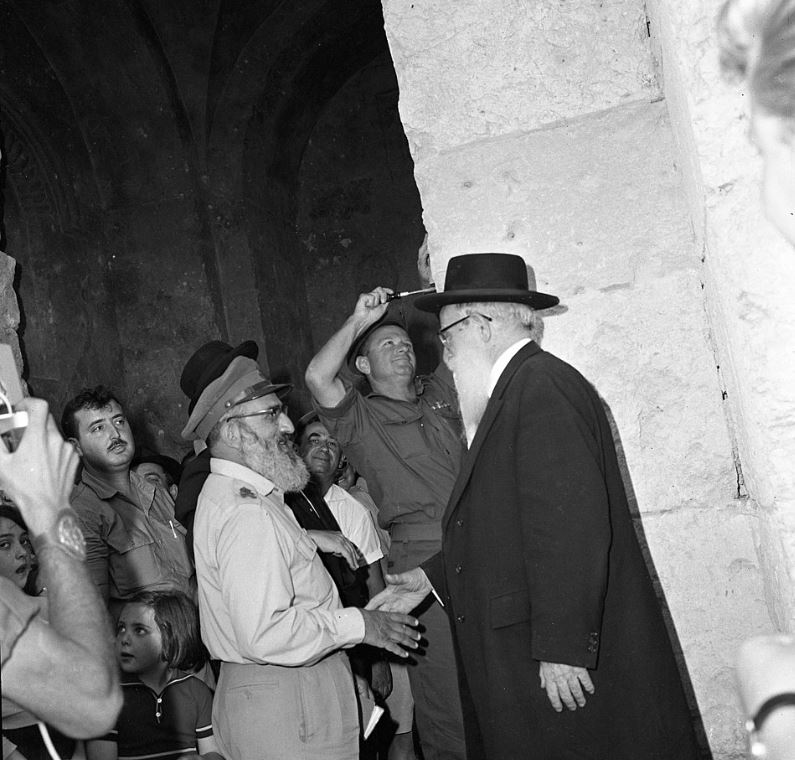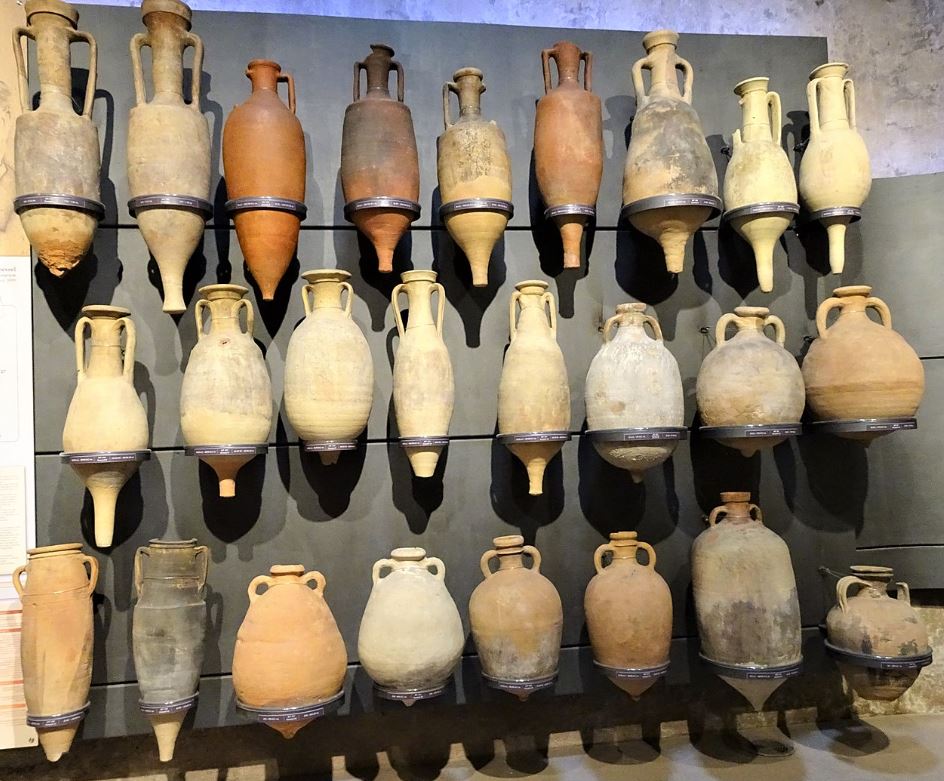Can you disagree with someone and still hold the highest opinion of them? That is what happens in the final Mishnah of our masechet. Rabbi Yishmael and his colleague Ben Nanas disagree on a point of law. Rabbi Yishmael then says that anyone who wants to learn monetary law should shadow Ben Nanas. (Bava Batra 175b).
If Rabbi Yishmael, one of the greatest of the Tannaim, has such high praise for Shimon ben Nanas, we should learn more about him. Ben Nanas was a member of the third generation of Tannaim, a group that included Rabbi Yishmael and Rabbi Akiva, the great innovators and compilers of the Oral Law. They lived in the second century CE in the Land of Israel, in the turbulent years between the Great Revolt and the Bar Kokhba uprising. Ben Nanas is sometimes referred to as Rabbi, as in this ruling brought in the Mishnah:
“Rabbi Shimon ben Nanas says: One may spread out a moist goat’s hide over a box, a chest, or a closet that caught fire, because the fire singes” (Mishnah Shabbat 16:5)
At other times, like in our Mishnah he is simply called Ben Nanas with no title:
“Ben Nanas said to him. . .” (Bava Batra 175b).
Even when Rabbi Yishmael pays him his compliment, he calls him Shimon ben Nanas, not Rabbi or Rav. In this respect, he is like others from this era: Ben Azzai, Ben Zoma and many more who may never have received ordination or were simply too young to have gotten it yet.
Rabbi Yishmael’s praise of Ben Nanas would lead us to suppose that he has many rulings about monetary law. This is not the case. We have about ten mentions of Ben Nanas’ statements in the Mishnah and only some of those are about monetary disputes. He also weighs in how one can decorate the baskets bringing first fruits to the Temple (Bikkurim 3:9), on purity in the Temple (Eruvin 10:15) and on sacrifices (Menachot 4:3).
Ben Nanas does not teach aggada, only halacha, although we do have a later source that quotes him on what is the most important verse in the Torah. He says the Torah can be reduced to “love your neighbor as yourself,” an echo of statements by both Hillel and Rabbi Akiva.
One of the most intriguing sources about Ben Nanas is a statement in Sanhedrin about a group called “those who deliberate before the rabbis,” דנים לפני חכמים. According to Rabbi Avraham Orenstein, this was the title given to young scholars who had not yet been ordained, and who would ask the more senior teachers questions in order to sharpen their understanding of the law. They are more than students but less than teachers. The Yerushalmi lists two of these scholars:
“These are the ones who argue: Ben Azzai and Ben Zoma.” (Yerushalmi Maaser sheni 2:4)
The Bavli expands the list and adds two more and Rav Nahman adds yet another:
“They deliberated before the Sages, this is Shimon ben Azzai, and Shimon ben Zoma, and Ḥanan the Egyptian, and Ḥananya ben Ḥakhinai. Rav Naḥman bar Yitzḥak would teach five: Shimon, Shimon, and Shimon, Ḥanan, and Ḥananya.” (Sanhedrin 17b)
Notice that none of these scholars have titles. Also notice how many Shimons there are! Shimon was the most popular Jewish name in Mishnaic times (see here). With so many students with the same name, it made sense to call each one by his father’s name or a nickname; simply calling him Shimon or even Rabbi Shimon would not do. Shmuel Klein suggests that Nanas was not his father’s name but a nickname based on his short stature – nanas means a dwarf.
Who is the third Shimon that Rav Nahman adds? Rashi says it is Shimon haTimni, another contemporary of Ben Nanas. But Rabbenu Chananel in his commentary writes that it is Shimon ben Nanas. Maimonides agrees with him, others disagree because if so, then Ben Nanas would be Rabbi Akiva’s student but in other places he seems to be his equal, like here:
“Rabbi Shimon ben Nanas says: they would decorate the bikkurim [with produce] other than the seven species. But Rabbi Akiva says: they may decorate only with produce of the seven kinds.” (Mishnah Bikkurim 3:9)
Regardless of his stature in the hierarchy of the Bet Midrash, Ben Nanas was considered an expert in monetary law. Rabbi Yishmael describes this branch of law as a flowing spring, מעין נובע. This is similar to a description we have in Pirkei Avot of Rabban Yohanan ben Zakkai’s student Rabbi Elazar ben Arach:
“And Rabbi Eleazar ben Arach is like an ever flowing spring.” Avot 2:8)

Jan Helebrant, CC0, via Wikimedia Commons
A spring is always renewing itself, it never stays the same. Monetary law requires quick thinking and innovation, one needs to assess social mores and understand psychology along with knowing the halacha. This adaptability is what led Jews to excel at finance, using and creating new tools when businesses required them, and not stagnating in old ways of thinking.
What can we learn about Ben Nanas’ method from our sources? Here in Bava Batra he is practical and insists that the judge see that the guarantor is really backing up the borrower, not merely giving lip service. In other cases he also seems very connected to the real world as opposed to dealing only with theory. He would prefer foregoing oath taking if it is obvious that one of the parties will have to swear falsely (Shevuot 45a). In the case of multiple wives swearing about receiving their ketubah, he insists that the last wife is just as obligated as the others:
“The fourth wife is paid without having to take an oath. Ben Nanas says: Should she gain because she is last?” (Ketubot 10:5)
Yaakov Meir (in his column in Makor Rishon on the daf) writes that the greatness of Ben Nanas is not that he creates the halacha. Rather, he implements the halacha and corrects it when the theory does not work in the real world. Meir sees this in Rabbi Yishmael’s praise of him:
“And one who wants to engage in (יעסק) monetary law should attend to (ישמש) Shimon ben Nanas.” (Bava Batra 175b)
If you want to engage in monetary law: not study, not teach, but be involved in it, live it, judge it: then you should tag along with Shimon ben Nanas, learn how he sees the world, and apply those lessons. This is a living halacha, a flowing spring that never becomes stagnant.
As we complete the massive tract of Nezikin (all the Bavas!) and prepare to enter the world of Sanhedrin, we should take Rabbi Yishmael’s advice and pay heed to the Ben Nanases of the world, who not only study but rather live the law.
Hadran alach masechet Nezikin!

User: Grauesel at wikivoyage shared, CC BY-SA 3.0 <https://creativecommons.org/licenses/by-sa/3.0>, via Wikimedia Commons










